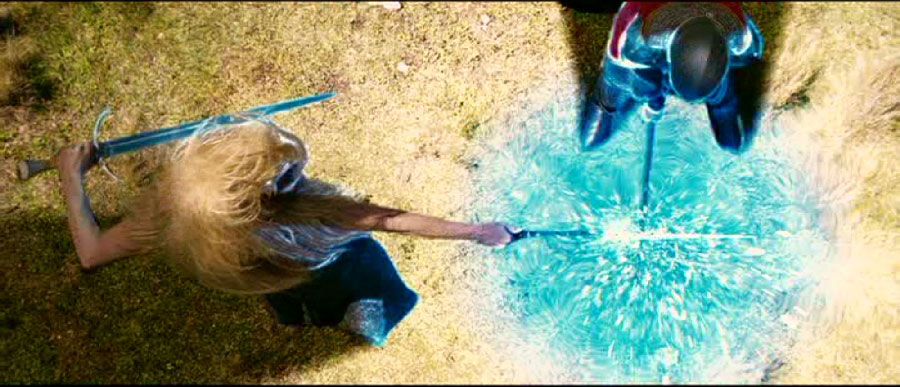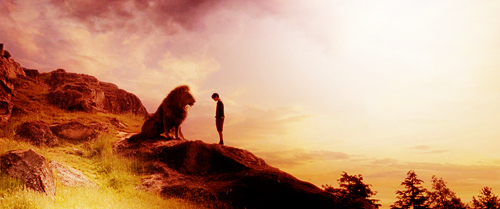Today we are reminded, also, of the Pilgrims and their brave journey across the ocean. A journey that lasted nearly two months; a voyage that was full of sea-sickness, short food provisions, and storms that nearly destroyed their ship. The Lord protected them, nonetheless, and they survived the hardships and arrived at the New World near the beginning of November, 1620. The end of their journey, however, was not the end of their struggles. Winter came upon them while they were unprepared and still settling in. As a result, half of the company that voyaged from Holland (about 150 people, including sailors, etc) in September, died during the first winter in the New World. Coldness, starvation, lack of Vitamin C, weak/unhealthy diet, as well as many other causes, resulted in Scurvy, Pneumonia, and Tuberculosis.
Squanto, a Patuxent Native American, befriended them after the dreadful winter, most likely in early spring. He taught them how to use the land and water to their advantage, eels and fish were caught from the ocean, while corn was planted as instructed by Squanto. A year passed, and the Pilgrims started to thrive and built homes from trees that were cut down in the process of clearing. Crops grew healthy and strong, as well as the friendship between the Pilgrims and the Indians (that they had feared so much). Captain Jones made a journey back to England on the Mayflower, in April of 1621 to get supplies and possibly more people to inhabit the New World. Then in October or November of the same year (1621), after they had gathered in all of the crops, there was a celebration and feast that lasted three days. Ninety Indians, as well as their Chief, joined the Pilgrims in this feast, helping supply food and entertainment. This was a time of rejoicing, and thanking the Lord for what he had done.
This was the first of many Thanksgivings and the colonists were accustomed to having these feasts regularly in the future - the thing of thanks changing every time. It really is a good example to us, to set aside a day of thanks. Though let us not forget to constantly be in thanks.
While this is considered the 'First Thanksgiving', it was not officially called that until 1863 when, during the Civil War, President Lincoln proclaimed a national day of "Thanksgiving and Praise to our beneficent Father who dwelleth in the Heavens". Since then it has been celebrated every fourth Thursday of November, nation wide. Lincoln's Proclamation of Thanksgiving (1863) is really amazing to read. I'll give you the link, instead of posting the whole thing here. Click - Proclamation of Thanksgiving.
I think it must have been hard, but profitable, for the people of America to find things to be thankful for in the midst of a sad, unneeded war. Brothers fought against brothers, friends against friends, and at the end of this cruel war an estimated 620,000 men died in line of duty. Cause of death varied from starvation, wounds (either instantly, later, or often from infection), frost bite, or slow death in Prison Camps. The prison camps actually played a large part in the amount of deaths, and as I read in a
 |
| 1st Minnesota Infantry at Gettysburg |
I am digressing. I apologize. But then again, I don't. I think its important to know about such things.
Last thanksgiving I wrote a short story (really short, I'd even rather call it paragraph) about the Pilgrims landing at the New World. And even though it doesn't necessarily include anything about Thanksgiving, I thought I would post it. It is after all about America, the Pilgrims, and the Mayflower. So enjoy:
The Land of the Free
The rough ocean wind ripped at the skirts of a young girl. She stood at the bow of a ship, her body rocking in rhythm to its movement. She was a sad picture standing there, her dress dirty and torn; her hair matted and tangled. But her face, oh her face, it was pale and haggard showing clearly what she had gone through the past two months. Indeed it was a miserable picture to look upon - one look into her eyes, however, and you forgot the rest. They were lit up with joy: brimming with happiness as she watched a stretch of land come closer in view, the ship sailing swiftly towards it.
Thoughts of the past couple months crowded into this young girls head as she clung to the side of the ship; thoughts of sleeping in a small, dirty bunk with the ship rocking her to sleep; of the meals of wormy biscuits and dry, tough, salted beef; of times when the ship was thrown recklessly about in a storm, everyone in fear for their lives. During these
storms they would huddle in the cramped cabin room, the lantern swinging dangerously as they listened to orders being barked, the sailors working hard - giving their lives - to save the ship.
Remembrances of sea sickness also flooded in, when more than half the passengers were in their beds groaning with pain, tossing and turning with fever, hardly knowing what was going on or how much time had passed.
And so it was the entire two months: Storm after storm, bout after bout of sea-sickness or scurvy, the repulsiveness of the filth that was on them, the sickening rocking of the ship, the cold, the wind, the fear that they would not survive this journey - everyone on board longed for the time when they would spot land. And finally they had, at last it was all over. They had reached their destination. Tears of happiness rolled down the young travelers cheeks as she sent a silent prayer up to God, thanking Him free the Land of the Free.
-Written by Evelyn
Happy Thanksgiving, may the Lord bless all of your endeavors.
<3 Eva
------------------------------------------------------------------------------------
After years of waiting... I have finally starting to read these lovely books.
After years of waiting... I have finally starting to read these lovely books.
I like Aragorn. a lot.










